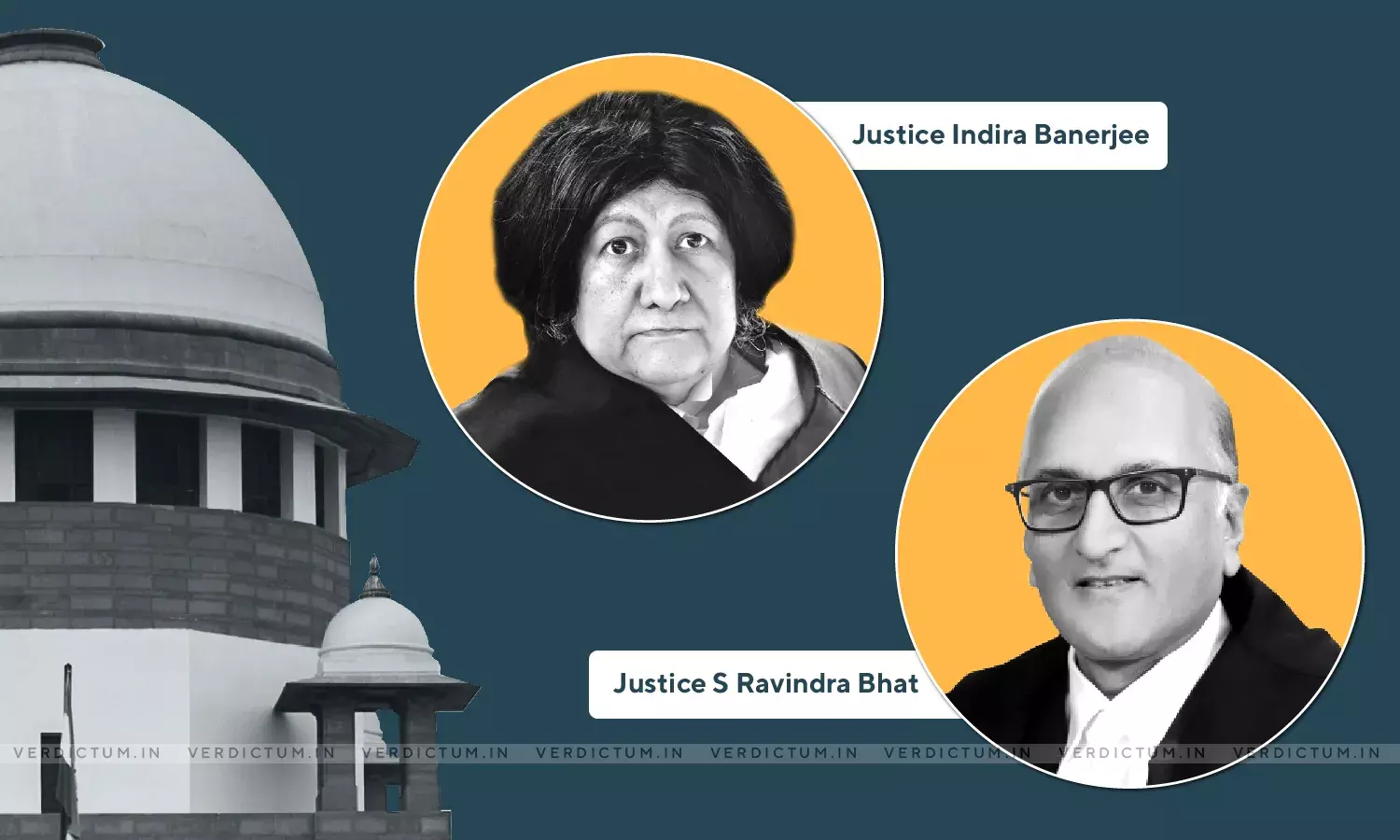Determination Of Nature Of Land By Taulak Land Board Has Evidentiary Value Under Kerala Private Forests Act: Supreme Court

A two-judge Bench of Justice Indira Banerjee and Justice S. Ravindra Bhat has held that where the Taluk Land Board has arrived at a determination about the character of lands, under the Kerala Land Reforms Act, it would become a piece of evidence for the purposes of the Kerala Private Forests (Vesting and Assignment) Act, 1971.
In the appeal before the Supreme Court, Senior Counsel Mr. Pallav Sisodia appeared for the Appellant-State while Senior Counsel Mr. K.V. Viswanathan appeared for the Respondents.
An appeal was preferred by the State against the judgment of the Kerala High Court which had held that out of the subject land, an area slightly over 402 acres vested with the State of Kerala and the rest of the land i.e., a total of 1534.40 acres of land had to be treated as plantation, and thus belonged to the Respondent (Popular Estates).
In this case, the Respondent was the owner of 1534.40 acres of land, which was acquired by sale. The forest authorities attempted to take possession of large areas of land occupied by the Respondent, arguing that they were private forests and were vested in the State, under the Private Forest Act.
The Respondent filed two original applications before the Forest Tribunal where the Tribunal, after directing the Forest Department Survey Officers to survey the lands, dismissed the original applications.
After which, the State issued a notification notifying 100 acres of the land of Respondent as private forest, based on the survey conducted by the Forest Officials. This was followed by an appeal being instituted in the High Court by the Respondent, which was dismissed, as also the Special Leave Petition.
Popular Estates also filed applications before the Tribunal under Section 8 of the Vesting Act challenging the State's notification and sought a declaration that the property covered by the applications was not private forest and had not vested in the State.
An appeal against the dismissal of the Respondent's Writ Petition was filed in the Supreme Court which held that Popular Plantation had the liberty to pursue their application before the Tribunal with a direction that in the event the Tribunal held that had no jurisdiction, the Respondent can file an appeal before the High Court to challenge the notification.
Aggrieved by the Tribunal's order, the Respondent approached the High Court, which allowed the appeal, holding the notification to be valid only in respect of 100 acres of land as forest land vested in the State. Thereafter, the State filed an appeal before the Supreme Court which decided the appeal (Popular II). The Court after holding that the decision of the Taulak Land Board could not operate as res judicata, but would be a piece of evidence, remanded the matter back to the Tribunal. The appeal of the Respondent was rejected by the Tribunal with a finding that the Respondent had failed to prove that that the disputed properties were cultivated with rubber, coffee, or cardamom.
On appeal, the High Court relied upon Popular II and the judgment in the matter of Kunjanam Antony v. State of Kerala and gave credence and weight to the findings of the Land Board to hold that the land ceiling proceedings do not act as not res judicata in the proceedings under the Vesting Act but constituted a valid piece of evidence. The Court concluded with a finding that except for the area of 155.9 acres of land, the rest of the lands covered were not private forest but plantations falling within the exclusions under Section 2(f)(1)(i)(A) to (D) of the Vesting Act.
The Apex Court, after considering the contentions of the parties and relevant provisions of law, considered the correct method of determining as to what is a private forest under the Vesting Act and also in connection with the interplay of provisions of Kerala Land Reforms Act and the Madras Act.
Rejecting the contention of the State that the Board did not have any evidentiary value, the Court relied upon precedents and held "the enunciation of the principle that "unless a contrary state of affairs" were shown to exist, the Board's order "would have to be given due weight" had to apply, and was correctly invoked by the High Court."
The Court, while agreeing with the judgment of the High Court, opined that were specific areas of the land were attributed towards the cultivation of rubber, coffee, and cardamom as required by law.
The Court considered that the Respondent was submitting agricultural income tax and employees provident fund and had also produced correspondence with these statutory authorities, as well as sales tax returns which support the conclusions of the High Court.
Additionally, the Bench held, "Where two plausible views on the conclusions that can be drawn from facts on the record exist, this court, in exercise of its discretionary jurisdiction under Article 136 of the Constitution would not interfere with the findings of the High Court."
In the light of these observations, the Court dismissed the appeal and upheld the judgment of the High Court.

